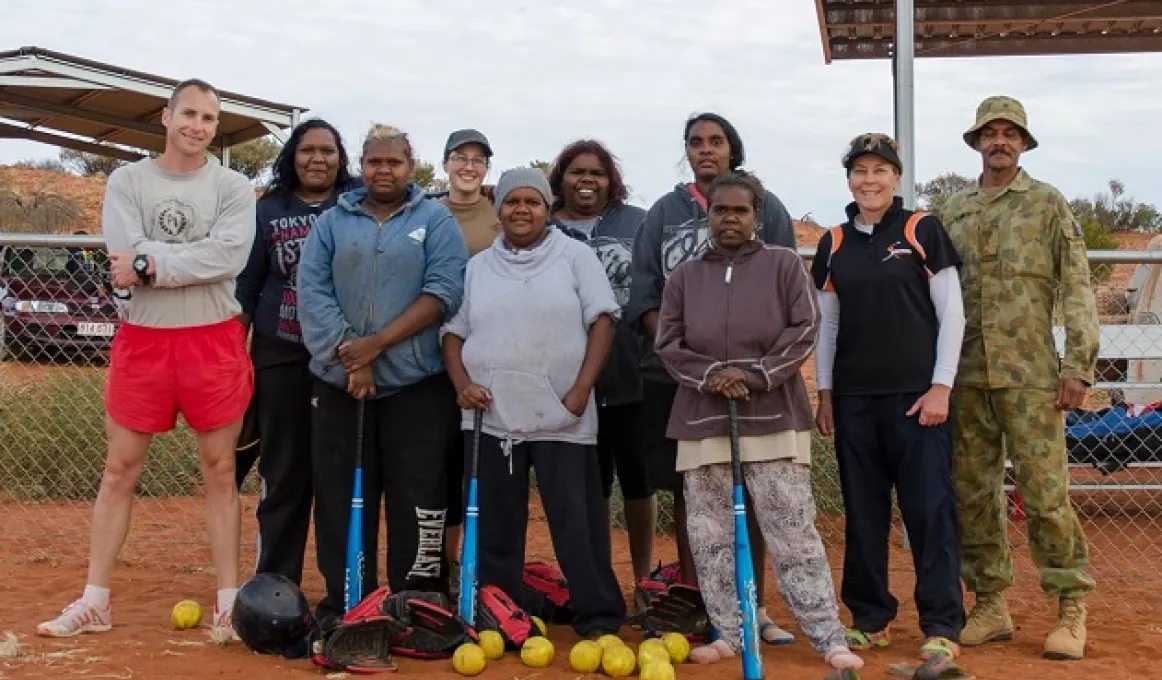Improving remote communities with AACAP

The remote Aboriginal community of Titjikala south of Alice Springs in the Northern Territory is seeing some changes thanks to the Army Aboriginal Community Assistance Programme (AACAP).
The remote Aboriginal community of Titjikala south of Alice Springs in the Northern Territory is seeing some changes thanks to the Army Aboriginal Community Assistance Programme (AACAP).
The recent arrival of 150 soldiers has led to extra housing, a new waste water treatment system, a larger men’s training shed and new change rooms at the football field. Veterinary services, health education and medical services are also being improved.
Major Christopher Sampson, who leads the soldiers, said the increase in housing is the most important change in the community.
“People getting their own area to live in and a reduction in occupants of four houses in the community will be noticed very quickly,” Major Sampson said.
Locals are also being trained in first aid, food preparation, multi-media and basic maths and English. They also have the chance to get their Certificate II in Construction training.
Community member William Gibson, who works in the welding shed, is one of several people being certified in construction.
“The Army is helping me plan, make and cut steel to make furniture that I weld together. This will make it easier for me to get a job and work in Titjikala,” William said.
“I get to learn how to make things for my home and community. I am also learning how to make things to sell in the community.”
Army personnel from East Timor, Tonga and Papua New Guinea have come to both assist with the project and learn about the programme itself. Major Sampson said the soldiers have felt very welcome in the community.
“Everyone who drives through the community daily receives smiles and gets waved at from a wide range of community members old and young,” Major Sampson said.
“They have been very engaging with us not only through their attendance at the more formal components of our training and health program, but also the informal community events such as the softball and AFL workshops, the community concert that was conducted and the healthy eating sessions.”
Find out more
The Army Aboriginal Community Assistance Programme is a joint project run by the Department of the Prime Minister and Cabinet, which provides up to $6 million per project, and the Australian Army which contributes significant personnel and equipment resources.
Around 40 Indigenous communities across Australia have benefited from the programme over the past 18 years.